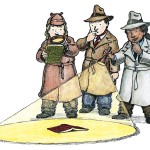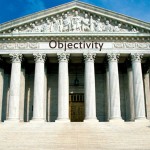
The unconscious influences in the city
The 7 senses of the art of religion news in the digital age. Part 3

The art of religion news in the broadband, multimedia, & social age, 2006-2009
Listicles, memes, and photo lists fueled new startups’ ascent to the most viewed entertainment and news providers.

The art of religion news in the broadband, multimedia, & social age, 2000-2005
The 21st Century brought the rise of websites gushing with digital creations connected by fast, big rivers of data made possible by broadband networks, faster computers and more storage space.

The art of religion news in the Browser Age 1990 – 1999
The invention of the browser was like a spectacular magic trick of invoking new sights at the click of a finger.

The art of religion news in the PC age, 1976-1989
Complexity and contradiction in the art of religion news

The art of religion news in Disrupter City
News media innovations arose with the vast movement of people and ideas into late 19th Century New York City.

The incompleteness theorem of the art of religion news
More than anything else, New York City contains religious mysteries.

Journalism and the Two Mandates: the role of journalism in creation and mission
The idea of vocation is particularly Christian. In ancient Greece leisure was the only end of any work and so work itself was not seen as a vocation. All labour was seen as slavish. In Hindu religious culture, the focus is on fulfilling one duty. Work was a part of such duty. Work itself was (more…)

‘Gotcha’ responsibility? How reporters can serve their readers
Journalists should be serving our readers with helpful news but often we look for our readers to serve our careers and agendas. What is a Christian journalist’s responsibilities in serving his or her readers?

God the Communicator
God is a god who communicates with his creation. Humans exercise their ‘image of God’ by communicating with each other. As journalists, how can we fulfill both our mandate to objective reporting and our calling to communicate God’s story?

Reporting, The Meanings of Words, and Bible Prophecy…
What can an investigative reporter learn from the meaning of “revelation” as presented by the Bible?

Lee Strobel Makes The Case For Christ
Lee Strobel came to faith by examining the Bible like an investigative journalist.

Sympathetic Objectivity Part 4
Skepticism
Skepticism and its journalistic embodiment investigative journalism are essential options for the reporter. In the first place the reporter needs to reflect skeptically on his own “sympathy” – is it just a poise to manipulate interviewees or is it real? It is so easy to fool oneself about one’s own virtue.
Second, a reporter needs to (more…)

Sympathetic Objectivity Part 3
Reporting should always pass through a zone of objectivity. This is a zone where one tries that super hard task of seeing as if a third party oneself and the people being interviewed. Fortunately, in this city of outsiders it should be easier to latch onto an outsider’s perspective. We try to accelerate this process by building an objectivity into our reporting process.
One way A Journey through NYC religions does this is through the use of four sensitizing questions that we always use during our interviews. We ask, what is unique and different about your religious organization? I.e. what is special, how would you convince us to check you out? What kind of impact is your synagogue, mosque, temple, or church having on your neighborhood or your network of people? And can you give an example of this impact from the last couple of weeks? If you were mayor of NYC, how would you change the city?

Sympathetic Objectivity Part 2
At A Journey through NYC religions we have a different approach which is built into our organization. Our idea of sympathy is that we have a “fellow-feeling” with our respondents. This solidarity is extended to “fellow understanding.” We empathize with them to the extent that we can think and feel like them. This reproduction of the other person into ourselves is not complete but is enough for empathetic understanding. Of course, the reproduction is constantly revised in light of comments and actions of the original, the person being understood! One reason we decided to launch a magazine rather than a blog was to develop a rigorous editing cycle of revisions.
This process resembles “adduction,” which the philosopher Charles Pierce said was the synthetic interaction of deductive reasoning (reasoning from your first religious or philosophical principles) and inductive reasoning (reasoning based on the patterns that present themselves in the reality that one is examining).


